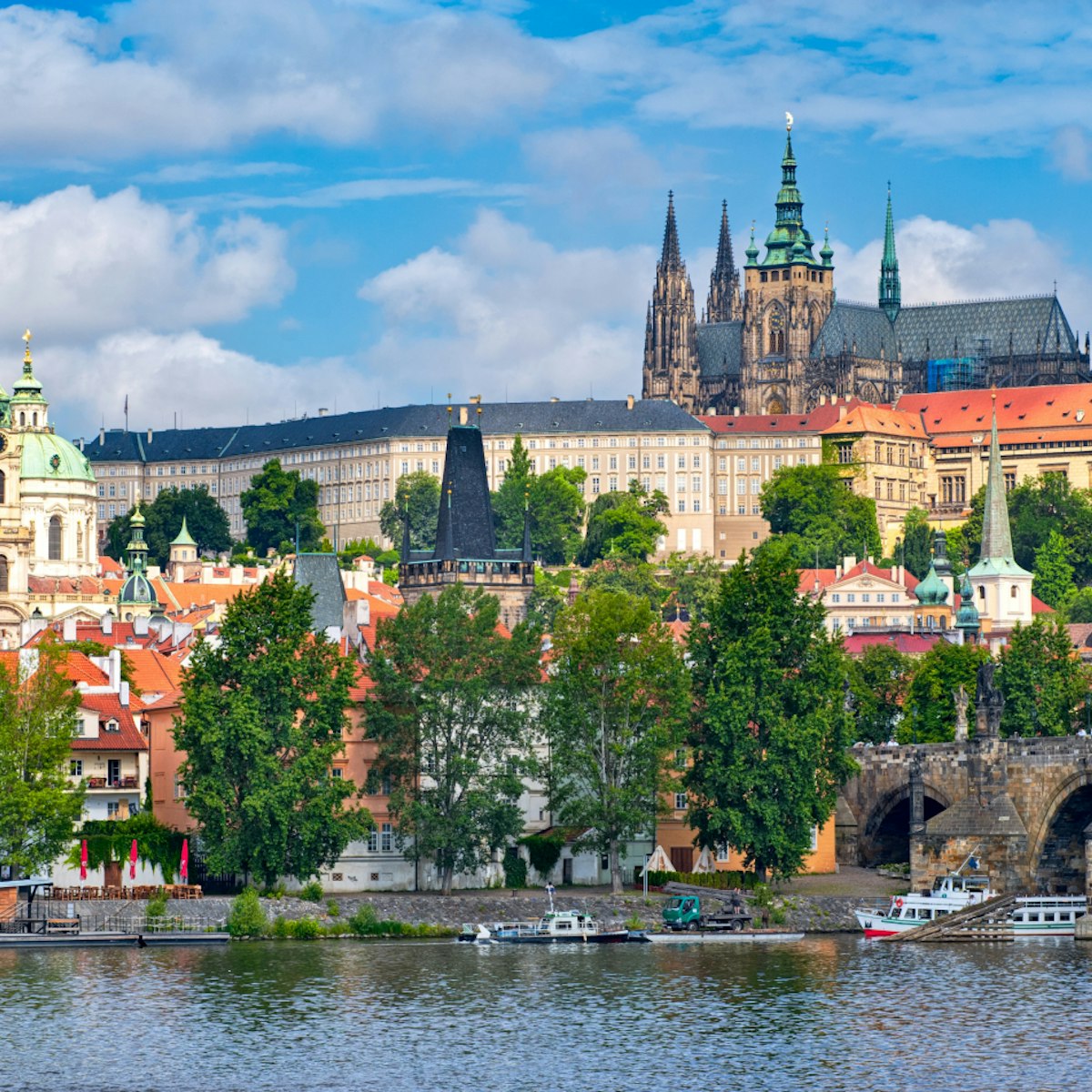In the northeastern corner of Staré Město is the former Convent of St Agnes, Prague’s oldest surviving Gothic building. The 1st-floor rooms hold the National Gallery’s permanent collection of medieval and early Renaissance art (1200–1550) from Bohemia and Central Europe, a treasure house of glowing Gothic altar paintings and polychrome religious sculptures.
In 1234 the Franciscan Order of the Poor Clares was founded by Přemysl king Wenceslas I, who made his sister Anežka (Agnes) the first abbess of the convent. Agnes was beatified in the 19th century and, with hardly accidental timing, Pope John Paul II canonised her as St Agnes of Bohemia just weeks before the revolutionary events of November 1989.
In the 16th century the convent was handed over to the Dominicans, and after Joseph II dissolved the monasteries it became a squatters’ paradise. It is only since the 1980s that the complex has been restored and renovated. In addition to the art gallery and the 13th-century cloister, you can visit the French Gothic Church of the Holy Saviour, which contains the tombs of St Agnes and Wenceslas I’s Queen Cunegund. Alongside this is the smaller Church of St Francis, where Wenceslas I is buried; part of its ruined nave now serves as a chilly concert hall.
The gallery is fully wheelchair-accessible, and the ground-floor cloister has a tactile presentation of 12 casts of medieval sculptures with explanatory text in Braille. Tickets are valid for 10 days.







